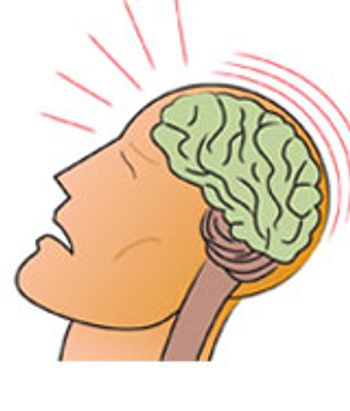
Is it possible to add creative twists to proven therapeutic techniques in order to encourage reluctant patients to try safe and effective treatments that we believe can benefit them? After reading the case, tell us what you think.

Is it possible to add creative twists to proven therapeutic techniques in order to encourage reluctant patients to try safe and effective treatments that we believe can benefit them? After reading the case, tell us what you think.

A case report of an acute, transient, reversible depression prompts us to think in a different way about depression.

Do persons with depression and a history of early life trauma benefit more from psychotherapy or pharmacotherapy? Take the quiz and learn more.

The articles in this Special Report address suicidal behavior in the context of the role of sexual identity, the effects of antidepressants and lithium on suicidal behavior, and clinicians’ reactions in the aftermath of suicide.

As an occupational hazard, preparing for the possibility of patient suicide will help the clinician anticipate the types of support that our colleagues or we may need to weather the event.

Through archival footage and interviews, the documentary "Prozac: Revolution in a Capsule" does a remarkable job of capturing the time when transformation ignited the collective imagination.

Are suicide rates higher or lower during holidays such as Thanksgiving and Christmas? Take the quiz and learn more.

What percentage of patients hospitalized for depression eventually die by suicide? Learn more in this quiz.

What percentage of depressed patients are resistant to treatment with conventional antidepressant medication?

Clinicians will likely encounter increasing numbers of older adults with late-life depression. Advances in our understanding of the neurobiology can help inform diagnosis and prognosis.

Patients with severe depression are more likely to have symptom remission with a combination of cognitive therapy and antidepressant medication than those with less severe or more chronic illness.

In this video, Dr Andrew Solomon talks about how psychiatrists and psychologists can help depressed or traumatized patients foster resilience, without trivializing their pain.

What to do once treatment-resistant depression is established based on risk factors and exclusion of other conditions? Insights here-and a treatment algorithm.

The discovery that a single IV infusion of low-dose (subanesthetic) ketamine exerts rapid antidepressant effects constitutes an expansion in our understanding of the neurobiology of depression and provides new avenues for drug development.

Chronobiology-the science of daily (circadian), monthly, tidal, and seasonal rhythms-has undergone exponential growth in the past decade, with major discoveries at the molecular and neuroanatomic level.

The “story behind the story” is not the over-prescription of antidepressants-though it happens-but the under-availability of optimal treatment.

Imagine an end to psychiatric episodes that threaten job and family, no more hospitalizations, and a chance for a long life not cut short by mental illness and its complications. What can we take away from the HIV/AIDS story for the treatment of mental illness?

A brief review of interesting new findings on suicidality and depression treatment in youths.

Given the greater frequency of depression than manic episodes in bipolar disorder, what clues indicate bipolar disorder rather than unipolar depression?

An update on the diagnosis, causation, and treatment of chronic depressive problems. The focus is on the recently introduced diagnostic category of persistent depressive disorder.

Here: the history of psychotic depression for the Study of the Pharmacotherapy of Psychotic Depression (STOP-PD), a summary its epidemiology, significance, diagnostic complexity, and treatment, as well as case vignettes.

This article reviews the most recent (after 2010) published guidelines on bipolar depression.

With over 2 dozen FDA-approved antidepressants on the market, it is reasonable to ask: which antidepressants are most effective?

Evidence has accumulated on the efficacy of transcranial direct current stimulation in major depression. The authors review its potential mechanism of action, findings from recent clinical trials, and potential role in the treatment of depressive disorders.

The removal of the so-called “bereavement exclusion” (BE) from DSM-5 was one of the most difficult and controversial decisions the DSM-5 work groups made, and many clinicians continue to find the distinction between ordinary grief and major depression confusing.